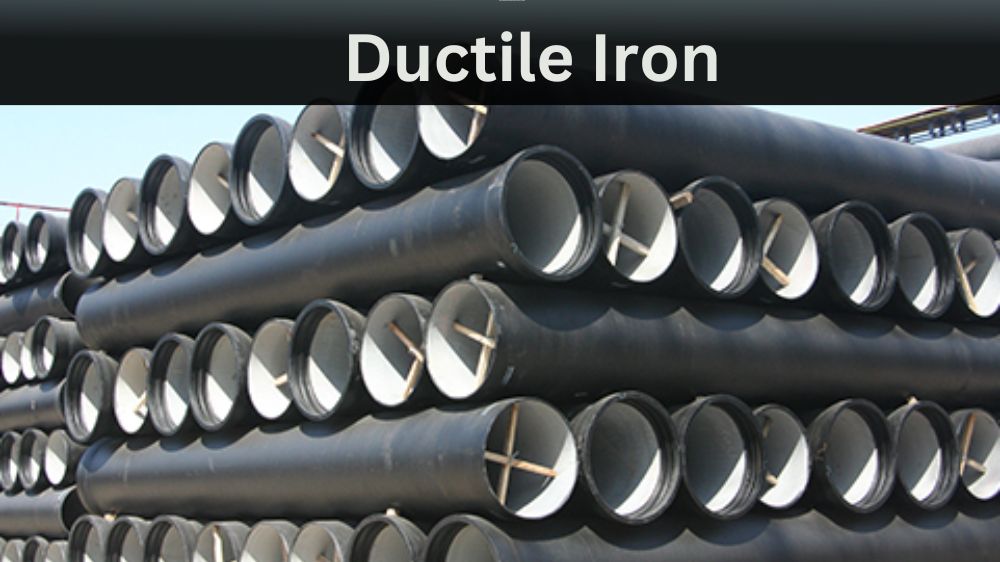
What is Ductile Iron – Composition, Properties and Uses
Ductile iron is a type of iron that is characterized by its high strength, ductility, and toughness. It is commonly used in various applications due to its excellent mechanical properties and ability to withstand high pressures and stresses. In this blog post, we will explore the composition of ductile iron, its properties, and some of its most common uses.
Composition of Ductile Iron:
Ductile iron is an alloy of iron, carbon, and silicon, along with small amounts of other elements such as manganese, sulfur, and phosphorus. The carbon content of ductile iron is usually between 2.5% and 4.0%, which is higher than that of other types of iron, such as grey iron. Adding small amounts of magnesium to the molten iron during the casting process enables the formation of graphite nodules, giving ductile iron unique properties.
Properties of Ductile Iron:
Ductile iron has several outstanding properties, making it a popular choice in various industries. One of its most notable properties is its high strength and ductility, which means it can bend and deform without fracturing. This makes it ideal for applications that require high strength and toughness, such as pipes, fittings, and automobile parts. Ductile iron also has excellent corrosion and wear resistance, making it an ideal material for water pipelines, sewer systems, and other applications that require long-term durability.
Uses of Ductile Iron:
Ductile iron is used in various applications due to its unique properties. One of its most common uses is manufacturing pipes and fittings for water pipelines and sewer systems. Ductile iron is also used in the automotive industry to produce engine blocks, differential cases, and steering knuckles. It is also used in the construction industry to produce steel beams, columns, and other structural components. Ductile iron also produces valves, pumps, and other industrial equipment.
Advantages of Ductile Iron:
Ductile iron offers several advantages over other materials. First, it has a lower cost than other materials, such as steel, which makes it an ideal choice for applications that require high strength and toughness. Second, it has excellent corrosion and wear resistance, making it ideal for use in water pipelines and sewer systems. Third, it can be cast into complex shapes and sizes, making it ideal for producing automotive and industrial components. Lastly, it has good thermal conductivity and fluidity, making it suitable for casting applications.
Conclusion:
Ductile iron is a versatile material with a unique combination of strength, ductility, and toughness. Its excellent mechanical properties and ability to withstand high pressures and stresses make it an ideal choice for various applications. From water pipelines and sewer systems to automotive and industrial components, ductile iron has proven reliable and cost-effective for many industries.